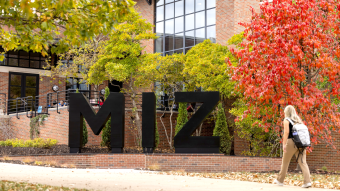Jan. 29, 2021
Transcript
Consiglio: The most commonly sexually transmitted infection in the U.S. is the human papillomavirus, or HPV. While the CDC has years of data showing the HPV vaccine is safe and effective, HPV vaccination rates still remain low, and negative, misleading social media posts about the vaccine may be one reason why.
In a recent study, MU assistant professor Monique Luisi studied more than 6,500 HPV vaccine-related posts on Facebook from 2006 to 2016. She found nearly 40% of the Facebook posts amplified a perceived risk about the safety of the HPV vaccine, which may cause some people to develop a false perception about the vaccine’s safety.
Luisi: “Negative posts really have the capacity to capture people’s attention, and by sharing and resharing these posts, they have a wider audience which can increase the skepticism that people have in HPV vaccines or vaccines in general.”
Consiglio: With the rollout of COVID-19 vaccines now underway, similar skepticism may be amplified by false or misleading social media posts, even as public health officials state the benefits of getting vaccinated. Therefore, Luisi reminds us of the importance of verifying what we read on social media before sharing, and understanding the influence we may have on others while online.
Luisi: “It’s important to read carefully, we live in a wonderful age where we have so much access to information, but information doesn’t always mean knowledge, so read, continue to research, and make sure that you ask your doctor or health professional to weigh in on things you have read.”
Consiglio: I’m Brian Consiglio, with a Spotlight on Mizzou.



